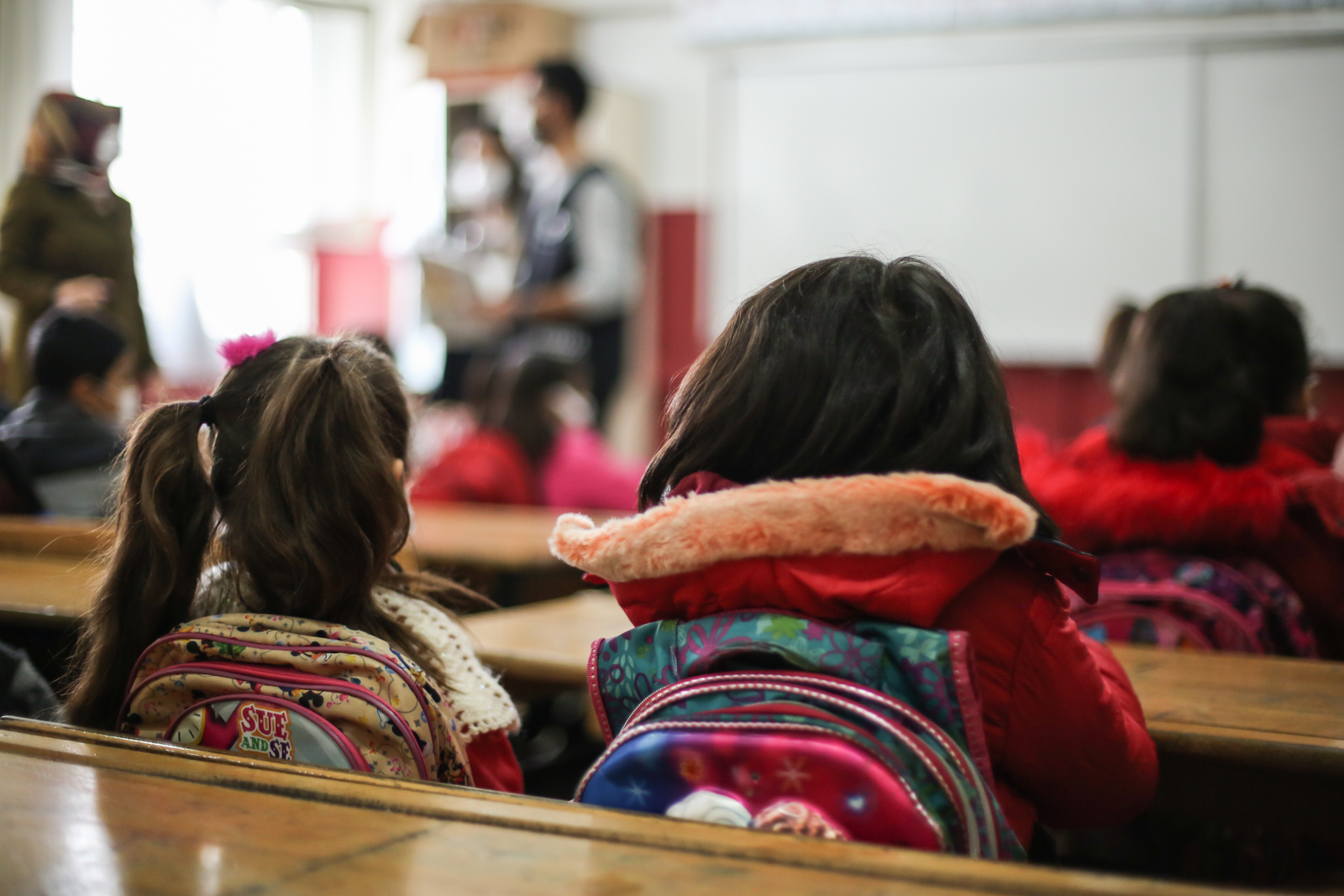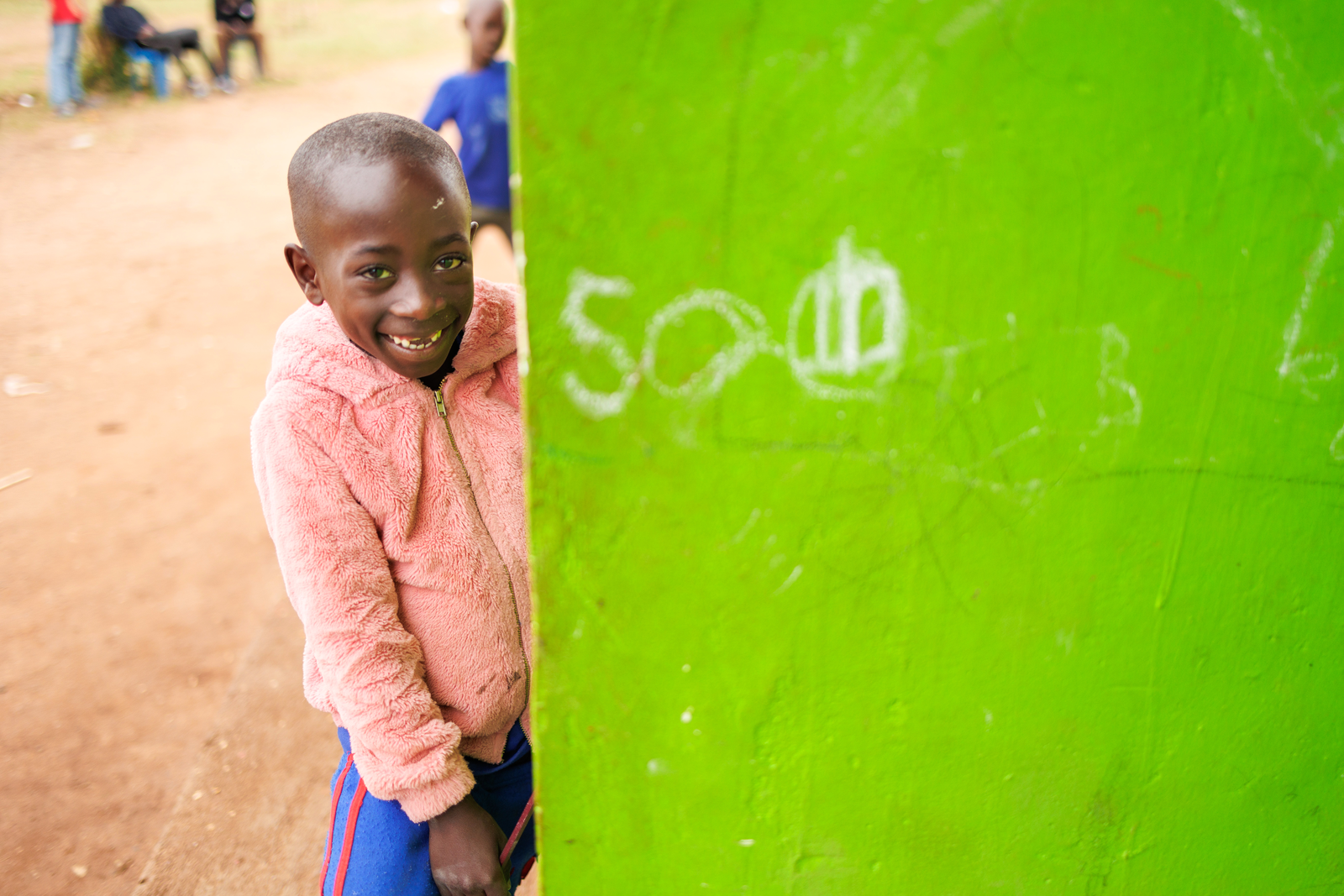
Two very different families with the same goal – to see their children educated
Girls' education, Refugees and internally displaced people, Right to education
To celebrate International Day of Families today, we look at the experiences of a tribal girl in Kenya and Syrian refugee children in Lebanon.
The background can be conflict, poverty or tribal traditions. But whatever the challenges faced by many families around the world, they usually have one thing in common – their desire to ensure a bright future for their children.
Today is International Day of Families, so we spoke to two families who live in different circumstances thousands of miles apart – but for whom education is the key to everything.
Turkana family from Kenya
The Turkana tribe of northern Kenya are traditionally pastoralists, living a semi-nomadic lifestyle based around their livestock. Traditionally, Turkana families will move depending to wherever there is water and plants for the animals – often following the rains.
One such family is led by Josephat Erot Ekamiis. Josephat will still move around with the livestock but his wives and children stay in the same place. The Turkana are traditionally polygamous and he has three wives and 18 children.
One of Josephat’s wives, Christine, has seven children – their only daughter Irine is the second oldest. Josephat and Christine have decided to give Irine an education and not arrange a “bride price” for her.
Ten-year-old Irine, her siblings, her mother, her father’s other two wives and their children all live in a collection of small huts (known as a boma or a manyatta) outside the town of Nasiger.
Here Josephat and Christine talk about their family life – and their hopes for their only daughter Irine. The interviews are courtesy of Save the Children.
“I was born in this area and I grew up with my father,” said Josephat. “After my father died I decided to settle here. We’ve been in this place since about 2000.
“All of my children have been born here. Migration is part of life for Turkana people. Whenever there are dry seasons, it becomes necessary to move the livestock in search of pasture and water.
“However, I don’t want to destabilise the children with too much moving around. Especially since the children are in school. It is good for them to stay in one place.
“When it is necessary to move the livestock, I send the older boys and often I will go with them with the livestock. But I always come back to this place.
“The same way you have a computer and you understand how to use it, I have a skill and I know how to take care of livestock.
“For example, when I am out with my goats, I have to take inventory of all my goats. I have to keep track of all the goats and know each and every one. I also know the generations and bloodlines of each goat. I know which one gave birth to which.
“Because I didn’t go to school, the only job we know is how to look after animals. We can’t do any other job – like farming or raising crops. In good seasons, we can get milk from the goats.
“Or in emergencies, for example if someone becomes sick, we can sell a goat to raise money and settle bills. If we have a visitor or need to have a feast we can slaughter a goat and use it for meat. Our goats are like a bank account that we can use to get money.
“We are living this way because we never went to school. This is the only thing we know how to do. Because we don’t have any other skills, we cannot do any other job. But a person who has an education can choose the life they want to live.”
Josephat believes that education will give his children a better life and future. He says: “Even though our children are still young. If I compare the way we live now with our children in school to the way we lived before as pastoralists, we see that our children have a bright future.
“Also, sometimes we go to school for parents’ day and we are told positive reports about our children and that gives us a lot of motivation and hope. It makes us feel a good.
“Neither of us can read or write. So sometimes our children actually help us out this way. For example, if we go to the doctor and he writes down for us an appointment date to come back. Our children can look at these things and tell us what they say.

“They can also write down things that help us with the inventory of our goats – especially when we take them to market to sell, my son can write down the number and descriptions of the goats we have taken to the market so we can make sure we get a fair deal when they are sold at market.
“As parents, we are very happy that God gave us Irine as our only daughter. Being the only daughter, we made a choice and a concerted effort that we would take her to school. We knew that we could not leave her to continue on in the pastoral life.
“We wanted her to go to school and to do well in life because we knew we couldn’t depend on the pastoralist life. It makes us happy to see that she does well in school. She is a good student and she is helpful around the house. She assists me with the chores at home.”
Mum Christine agrees. She said: “What made me want for Irene to go to school is this. We saw neighbours and people around our area who sent their children to school had a better life. We saw that families with educated children eat well and live well.
“For us, when there are droughts or dry seasons we keep seeing our goats die and it makes life very difficult for us. We have to depend on making and selling charcoal. Living like this as pastoralists, our lives are very dependent on rainy seasons and dry seasons.
“But a person who is educated – their life knows no season. They are able to live a good life throughout. We saw that perhaps it was better to live that way with an education rather than the way we’re living.”
Syrian refugee family in Lebanon
Yousra is a young mother in a Syrian family who live in the refugee settlements of Lebanon’s Bekaa Valley. Here she tells her story of struggle, challenges and hope – courtesy of the charity Children on the Edge.
“We arrived in Lebanon around five years ago,” said Yousra. “Our home life in Syria is not so different from anyone else’s – but a sense of threat that came closer and closer, finally forcing us to flee.
“The final straw was when my husband was kidnapped for two hours and told he must spy on family and friends or he would be killed. So we crossed the Syrian border shortly after and moved into a very basic Lebanese refugee camp.
“Families share tents with just a thin tarpaulin between them so there is little privacy or space. I grow basil outside in pots and every day my family sit down together to cook and share a meal, often joined by neighbours or new friends from the community.
“The original camp we arrived at had created a degree of safety. But one morning the military arrived, fully armed, announcing that the camp had to be cleared in a week due to a military base expansion. We were given no direction of where to go.”
At this point the family moved to a new camp, supported by Children on the Edge. Their children had been attending a school also supported by the charity, which moved with the people to the new camp.
Their eldest daughter initially struggled with concentration and behaviour, after what she had been through. But she gradually adapted to the environment, responding to the consistent care and attention given. She is now thriving at the new school.
Yousra said: “Daily life often consists of my husband going out to find work. He regularly stands at the side of the road, hoping to be picked out for potato harvesting. These opportunities are few and far between.
“The old camp where we lived originally had owners who expected children to join in with the harvesting as payment for the land. Now we are at the camp run by local partners of Children on the Edge, they are safer and the children can continue their education without threat. They like to meet with their friends and walk over to the school together.”
Mainstream education is not currently an option for the children, as accessible schools are scarce where they live.
On a wider scale, 290,000 Syrian refugee children living in camps in Lebanon are still not able to access education. Refugee children can face harassment, violence or discrimination. The journey to school is long and often in the dark.
Yousra said: “My children go to an informal tented school, with teachers who are trained up from the refugee community. This creates familiarity and solves the problem of language barriers.
“They are able to learn with a specially designed Lebanese-Syrian curriculum, and a phonics system that is taught in the Arabian dialect. They are growing in confidence and progressing well.”
Yousra goes to English classes and women’s groups run by the local organisation. She can develop her skills and has also learned much about the value of education for her children.
She describes her most important priority as wanting to feel safe, to be able to stay with family and near friends in a culture similar to home. Refugee settlements here are regularly subject to military raids, arresting individuals and conducting forced evacuations. This does not create a sense of safety.
Most of all she longs to be able to return home and to normal life as soon as possible. But with the ongoing violence in Syria, this is not currently a possibility.
Despite this, she feels happy and lucky to have her children and her husband with her, which is quite rare in the camp she is living in. She is constantly worried about her extended family and friends who are still suffering in Syria.
Communication with them is difficult and she often goes for months without hearing from them, not knowing whether they are alive.

Refugees and internally displaced people
More news

Skills for the future give young people the best chance of success
